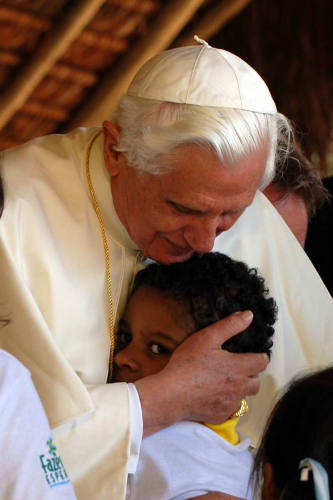Welcome to new blog followers Laura, Gary, and Catholic Marine (Semper Fi!), who added their pictures to the rogues' gallery on the lower right. Happy to have you here, and although I lured you here with the chance of winning free books, I hope you'll benefit in other ways.
Also welcome to a number of other, more anonymous people, who added Coffee&Canticles to their reader feed.
This week's Divine Office Factoid deals with: the Mood of the Psalms vs. My Own Personal Mood. Most Divine Office veterans get this distinction, but it might be helpful to newbies. Here' the issue: What is the point of praying a happy psalm when you're sad, or a sad psalm when you're happy? If I'm up to my ears in debt and my best friend is dying of cancer, it's hard to put much conviction into lines like Come let us sing to the Lord and shout with joy to the rock who saves us. On the other hand, when life, both physical and spiritual, is going well in every possible way, what is the point in praying stuff like My soul is filled with evils, my life is on the brink of the grave? Wouldn't it be more honest to select a psalm from one of those Bible society cards that says "When you are afraid, read Psalm A" "When God seems far away, read Psalm B" "To thank God for his blessings, read Psalm C"
Nope. Because the whole point of the Liturgy of the Hours is that it's (altogether now, class) Liturgical Prayer. We are not just praying about our own little needs, feelings, and situations in life. We are praying on behalf of the entire Church. We are praying through, with and in Jesus Christ, Our Lord. We are standing before God (which I mean figuratively, since most of the time I'm sitting in rocking chair) and expressing the joys, sorrows, thanks, praise, repentance and petitions of the entire body of Christ. There are always Christians who are happy, sad, sick, dying, poor, bereaved, persecuted, etc. We are praying on their behalf. Also, and even more important, we are often praying the words in the voice of Jesus as He prays to His Father. And that realization will bring you the most profound and beautiful thoughts during the liturgical hours.
So, when all is right with your world on a Friday night, and you're reading Psalm 88 (my soul is filled with evils, your anger weighs down upon me, etc.) You have three ways to think about the suffering of Christ: 1. meditate on the agony in the garden. 2. Cry out on behalf of the Church which is derided and insulted by secular types who are longing for and plotting its downfall. 3. Plead in union with your brothers and sisters the world over who are suffering from illness, persecution, addiction, hunger, etc.
Yes, we all love it when a particular psalm or verse of a psalm seems custom made for our situation on the day we pray it. Rejoice in those moments. But never forget that it's not about you. It's Liturgical Prayer, not private devotion. You've taken on the responsibility of praying in a larger way.
Okay, weekly Q&A time. How's lent going? Are your chosen penances and/or spiritual activities going well?
Any question about the Liturgy of the Hours? Ask away!



